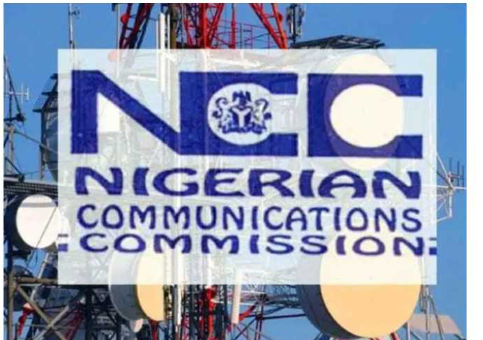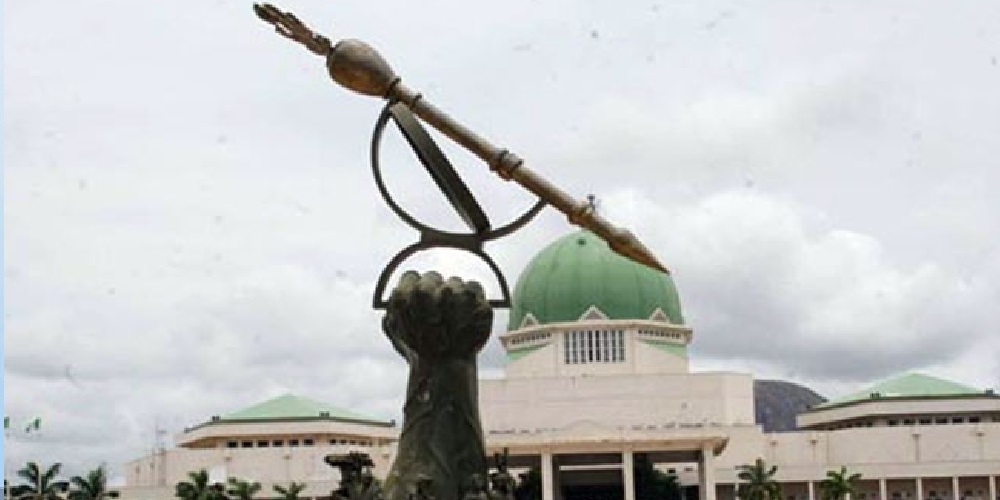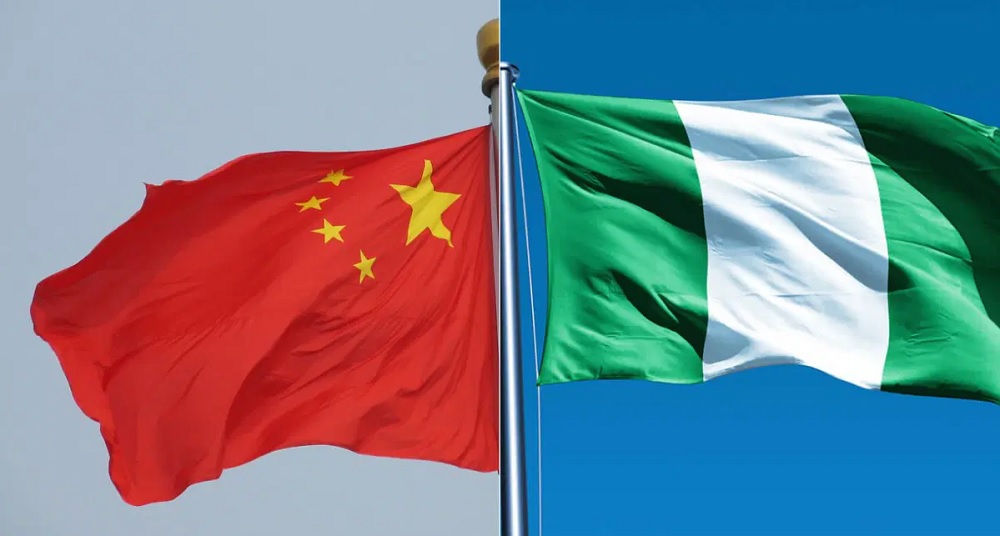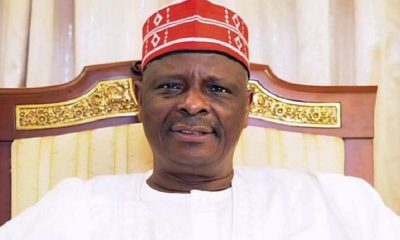News
High Operating Costs: NCC, stakeholders kick as telcos threaten service outage

By Kayode Sanni-Arewa
Telecom operators have warned that the excruciating financial obligations they are burdened with at the moment may push them to adopt load-shedding formula of the power sector in providing telecom services in the country.
But the regulator, the Nigerian Communications Commission, NCC, in a swift reaction, said it would not be arm-twisted by the operators’ threat.
Load-shedding is a formula that the electric power provider uses to relieve stress on a primary energy source when demand for electricity is greater than the primary power source.
It is a service formula which denies power supply to an area at a time just to relieve stress on the power source.
Chairman of the umbrella body of the telcos, Engr Gbenga Adebayo, disclosed this at an event put together by the Financial Derivatives Company, FDC, titled ‘’Telecom Industry 2.0: The Next Investment Frontier in Nigeria.’’
Addressing concerns of debilitating telecom services in the country, Adebayo said the country’s economic woes have impacted the telcos so badly, to the extent that they might not be able to service all their facilities at the same time.
Adebayo said the point at which telcos have found themselves at the moment is where they could only service a part of their facilities at a time, meaning that the area they are able to service will enjoy better services, while other areas not so lucky at the time may just have to bear epileptic services.
Telecoms sector, victim of its own success ’
Adebayo said: “The question to ask is why has government found it difficult to take advantage of different advocacies to sustain a healthy telecom sector despite these advocaies coming from verified data and indicies?
‘’I will say it is because the telecom sector has become a victim of its own successes. The behaviour of the public sector towards using the sector to better the economy is at variance with what is obtainable in other climes.
‘’The behavior of those that superintend over government agencies is poor and anthitetical to progress. Remember that when the operator signed agreement to provide telecom services in the country in 2001, the part Nigerian government signed was to provide 18 hours of power supply to the operators.
‘’That part of the bargain has not been fulfilled since then. Yet, the greater part of our operating expenditure, OPEX is on power.
“Multiple taxation from different government and non-government agencies is another hydra-headed problem, just as the banking sector debt to the telcos have also culminated to the poor state of infrastructure maintenance in the telecom sector.
“As we speak, there is an Association of Telecom Landlords whose primary aim is to fix rental charges for telecom facility deployments. This will be in addition to over 40 different taxes and levies the telcos face in the course of their operations.
“With all these, services will continue to be impaired. Today, we are heading to a situation where telecom services will be provided in parts because telcos may not be able to service all their sites at the same time.”
Price increase has become imperative —MTN CEO
Corroborating Adebayo was the CEO of MTN Mr Carl Toriola who joined the meeting on Zoom.
Toriola said that the severe sustainability challenges the telcos currently face need urgent attention to salvage the entore ICT sector.
He said despite the growth over the past two decades of liberalisation, the sector is now threatened by rising costs and unsustainable pricing.
He said: “Price increase has become imperative, it is now an absolute necessity because the sector is in an intensive care unit and needs urgent rescue to avoid total collapse”.
Expressing concerns that the sector will lose more investments as the rot digs in, Toriola said: our fundamental challenge is that the financial returns expected from the industry are now so low that they threaten its very survival.
“Nobody is going to put in $1 with the expected return of 60 cents on the dollar,” he said.
“There’s no way under the surface of the earth, in the kind of inflationary environment and forex devaluation that we’ve seen, that an industry can maintain prices the same for 11 years.
“The telecoms sector has faced escalating costs across the board — from the cost of capital to the soaring expenses of maintaining infrastructure like base stations and diesel generators.
“Without adjustments to pricing, the industry’s ability to function and attract investment is in jeopardy.”
However, the telcos’ position has drawn reactions from critical stakeholders, including the regulator, the Nigerian Communications Commission, NCC, National Association of telecom subscribers of Nigeria, NATCOMS, among others.
NCC reacts
A reliable source at the NCC said the regulator would not be arm-twisted by the telcos’ threat because they are known to be deploying several tactics to get the regulator to approve tariff hike for them.
He said: “We agree that the operating environment is difficult but it is not only for the telcos, every other sector is going through same hard times. If the operators say they cannot provide quality services because of economic conditions, it is not strange. It is their strategy.
‘’The reason they have not gone to where you have access gaps is because of low revenue they could attract in those places. This latest load-shedding formula is a subtle threat to get the regulator approve tariff hike, which they know is not possible that way.
‘’We cannot be arm-twisted by subtle threats “ the source who didn’t want his name mentioned, said.
Subscribers ‘ll hold NCC responsible—NATCOM
But in a sharp reaction, the President of NATCOMs, Chief Deolu Ogubanjo, said the subscribers will hold the NCC responsible if the industry collapses because, according to him, load-shedding will collapse not only the telecom sector but banking, education, health and other sectors which are now dependent on telecom services.
He said: “Telecom has become a legacy with the Nigerian society now, because telephone is life. In several stakeholder meetings, we have advocated that the telcos should be allowed a decent level of tariff pricing to tally with the high operating cost and the regulator is not doing anything about it when it has seen that these telcos are crashing under the weight of operating costs. It is not fair.
‘’It is possible that their OPEX may not be able to carry routine maintenances and what that may lead to is service downtime as we are witnessing now. If anything happens to the telecom sector today, the banking, education, health and entertainment sectors among others will go with it.
‘’This is why the regulator should act fast, else subscribers will hold it responsible if the industry collapses,” he threatened.
huge foreign direct investment into the country.
On infrastructure deficits, the telcos complained they still lacked access to essential telecommunication services due to a myriad of challenges, including multiple taxation and regulations and prohibitive Right of Way (RoW) charges, inadequate electric power supply and vandalism of telecommunications infrastructure.
They also advocated legislation that designates telecommunications infrastructure as critical national infrastructure as a way of protecting assets and network infrastructure in the country, considering the escalating security threats facing telecommunications infrastructure in Nigeria.
The telcos also claimed that telecommunications infrastructure development required substantial investments in network expansion, maintenance, and technology upgrades.
They added that despite the adverse economic headwinds, the industry remained the only one yet to review its general service pricing framework upward in the last eleven years, primarily due to regulatory constraints.
They also argued that for a fully liberalized and deregulated sector, the current price control mechanism, which is not aligned with economic realities, threatened the industry’s sustainability and could erode investors’ confidence.
The joint statement also asked government to sustain the culture of independence in the regulatory landscape as safeguard against undue influence and unwholesome incursion into the Nigerian Communications Commission, NCC’s domain.
They believe regulatory independence would inspire trust in the telecommunications sector and encourage investment.
Stakeholders, analysts side with telcos
Meanwhile, stakeholders and telecom industry analysts have supported the telcos’ call for a flexible pricing model, saying it would open doors of more opportunities for the sector.
A senior lecturer and former HOD, Computer and Information Sciences Department, Trinity University, Dr. Falade Muritala Adesola, said: “Pricing autonomy is a linchpin for industry sustainability. The ability to set cost-reflective tariffs is indispensable for ensuring adequate returns on investment and fostering long-term viability.
‘’Telecom operators require a more transparent and collaborative approach to tariff adjustments, emphasizing the importance of a pricing framework aligned with operational realities.
‘’The current pricing window, sanctioned by regulators, is a foundation, but the industry needs greater flexibility to navigate cost fluctuations while ensuring service quality and accessibility remain uncompromised.
“The clamour for cost-reflective tariffs is not merely about short-term gains but a strategic imperative to sustain the sector’s growth trajectory. The transition from 2G to 5G and with 6G on the way symbolizes the industry’s evolution, made possible by substantial investments that fuel innovation and expand service capabilities. However, without conducive regulatory frameworks that incentivize investment, the industry risks stagnation, jeopardizing future advancements and undermining service availability.
“The telecommunications industry in Nigeria is currently at a crossroads where infrastructural challenges, pricing dynamics, and regulatory frameworks intersect, offering a unique opportunity for swift and collective action.
‘’A thriving and resilient telecommunications ecosystem has the potential to empower individuals, drive economic growth and enrich lives across the nation of Nigeria. Whilst the industry regulator has delivered commendably, prevailing realities demand a new approach to ensure continued viability of the sector.”
News
Trouble brewing as Trump’s supporters move against Pope Leo, give reason

Catholicism has rarely been more prominent in US politics as the Trump administration openly embraces advisers and officials who proudly say faith has shaped their politics.
But any jubilation on the American Make America Great Again right about the new Pope this week quickly dissipated as key voices from Donald Trump’s Maga movement came to a disappointed conclusion: the first American Pope does not appear to be “America first”.
Little is known about the political leanings of Pope Leo XIV, born Robert Francis Prevost in Chicago.
He has voiced concerns for the poor and immigrants, chosen a name that may reference more liberal church leadership, and he appears to have both supported the liberal-leaning Pope Francis and criticised the US president’s policies on social media.
But the president so far has said only that Leo’s election was a “great honour” for the US. Still, some of Trump’s most prominent supporters were quick to attack Pope Leo, lambasting him as a possible challenge to Trump and on the perception that he will follow Pope Francis in areas like immigration.
“I mean it’s kind of jaw-dropping,” Trump’s former chief strategist Steve Bannon told the BBC on Friday, speaking of Leo’s election.
“It is shocking to me that a guy could be selected to be the Pope that had had the Twitter feed and the statements he’s had against American senior politicians,” said Bannon, a hard-right Trump loyalist, practising Catholic and former altar boy.
And he predicted that there’s “definitely going to be friction” between Leo and Trump.
The Pope’s brother, John Prevost, told The New York Times that he thinks his brother would voice his disagreements with the president.
“I know he’s not happy with what’s going on with immigration,” he said. “I know that for a fact. How far he’ll go with it is only one’s guess, but he won’t just sit back. I don’t think he’ll be the silent one.”
Recent survey data shows that about 20% of Americans identify as Catholic, according to the non-partisan Pew Research Center.
About 53% identify with or lean towards the Republican Party, though there’s plenty of nuance, too: America’s two Catholic presidents, John F Kennedy and Joe Biden, were both Democrats. And nearly two-thirds of US Catholics believe abortion should be legal in all or most circumstances – a departure from the Church’s current stance.
US Catholics also broadly supported Pope Francis: 78% of those surveyed in February viewed him favorably, including a majority of Catholic Republicans.
A number of Catholics In the new Pope’s home city of Chicago, on Thursday, aired disappointment with President Trump and said they hoped Pope Leo XIV would follow the path of his predecessor.
“We hope he’ll continue with Francis’s agenda going forward,” said Rick Stevens, a Catholic deacon from New Jersey who happened to be visiting Chicago when he heard the news.
The US Conference of Catholic Bishops, which leads and coordinates US Catholic activities, celebrated Pope Leo’s election and the message it sends.
“Certainly, we rejoice that a son of this nation has been chosen by the cardinals, but we recognise that he now belongs to all Catholics and to all people of good will,” the conference said in a statement. “His words advocating peace, unity, and missionary activity already indicate a path forward.”
Though Maga supporters represent a small subset of US Catholics, it’s one with outsized access to conservative media and Trump’s ear.
On Bannon’s War Room podcast – known for its hard-right, pro-Trump bent – one guest after another heaped criticism on the new Pope.
“This guy has been massively embraced by the liberals and the progressives,” said Ben Harnwell, a journalist who led Bannon’s efforts to establish what he calls a “gladiator school” for the “Judeo-Christian West” outside of Rome.
“He is one of their own… he has [Pope] Francis’s DNA in him,” Harnwell said.
Jack Posobiec, another Maga commentator dialing in from Rome, was blunt: “This choice of the American cardinal was done as a response, as a message to President Trump.”
The full picture of what led to Pope Leo’s selection on Thursday is still emerging and church decisions don’t map neatly onto US politics. Still, watchers around the world have pored over Pope Leo’s social media profiles in search of clues about his leanings and beliefs.
An X account under his name, with tweets going as far back as 2015, shares links to criticism of Trump’s approach to immigration and hints at other political views, such as stricter gun control.
In February, the account sharply rebuked the US vice-president by posting a link to an opinion piece titled “JD Vance is wrong: Jesus doesn’t ask us to rank our love for others”.
The account also posted a link to a letter from Pope Francis after he clashed with Vance over church doctrine and immigration. Vance – a Catholic convert – had given an interview in defence of the Trump administration’s immigration policies.
Vance has routinely invoked his faith in defense of the administration, particularly immigration policies, which the White House has said put “America first”.
“There is a Christian concept that you love your family and then you love your neighbour, and then you love your community, and then you love your fellow citizens, and then after that, prioritise the rest of the world. A lot of the far left has completely inverted that,” Vance told Fox News.
But US Democrats were not spared either on the account, which has more than a decade of posts. They appear to support Catholic employers who refuse to pay for contraceptives via employee health plans, and following the 2016 US presidential election, one post links to an article accusing Democrat Hillary Clinton of ignoring pro-life Catholic voters.
The BBC asked the Vatican to confirm the account was Leo’s, but did not receive a response.
Vice-President Vance told conservative broadcaster Hugh Hewitt on Friday: “I try not to play the politicisation of the Pope game.
“I’m sure he’s going to say a lot of things that I love. I’m sure he’ll say some things that I disagree with, but I’ll continue to pray for him and the Church despite it all and through it all, and that’ll be the way that I handle it.”
The new Pope’s LGBTQ views are also unclear, but some groups, including the conservative College of Cardinals, believe he may be less supportive than Pope Francis.
Matt Walsh, a commentator with the conservative Daily Wire, wrote: “There are some good signs and bad signs with this new Pope. I want to see what he actually does with his papacy before I pass any kind of judgment.”
But some of the most dedicated Maga supporters already have made up their minds.
Laura Loomer, a far-right influencer who has Trump’s ear, swaying the president on top personnel decisions, called the new Pope “anti-Trump, anti-Maga, pro-open Borders, and a total Marxist like Pope Francis”.
Bannon, who had suggested Leo as a dark horse for the papacy, predicted tensions between the White House and Vatican – and said they could even tear apart American Catholics.
“Remember, President Trump was not shy about taking a shot at Pope Francis,” he said.
“So if this Pope – which he will do – tries to come between President Trump and his implementation of the mass deportation programme, I would stand by.” BBC
News
Digital Shift in National Assembly No Longer Optional – CNA Ogunlana

By Gloria Ikibah
The Clerk to the National Assembly, Kamoru Ogunlana, has stressed the urgent need for the Nigerian Parliament to adopt digital technology, describing it as a necessity in today’s world rather than a choice.
Ogunlana made the remark during his opening address at a three-day retreat organised by the National Assembly in partnership with the Policy and Legal Advocacy Centre (PLAC). The event, which began on Friday, was supported by the UK Foreign, Commonwealth and Development Office (FCDO), and held under the theme “Building an Accountable, Transparent and Resilient Parliament: The Role of the National Assembly Top Management.”
According to him, “the use of technology in the Nigerian Parliament is not an option but a necessity,” especially as legislative processes around the world are becoming increasingly digital.
He pointed out that the retreat’s theme directly addresses the ongoing shifts and demands within the National Assembly, offering a critical moment to rethink approaches, plan strategically, and implement meaningful reforms.
“This presents a vital opportunity to reflect, strategize, and lay actionable plans that will shape the future of the National Assembly Service,” Ogunlana stated.
News
China Responds to AFN Claims Over Visa Delays for World Relays in Guangzhou

By Gloria Ikibah
The Embassy of China in Nigeria has responded to reports that Nigerian athletes withdrew from the 2025 World Athletics Relays in Guangzhou due to visa delays allegedly caused by Chinese authorities.
In a statement issued by the embassy, the claim by the Athletics Federation of Nigeria (AFN) was described as “clearly inconsistent with the facts.”
According to the embassy, “On April 24, the Embassy received a letter from the National Sports Commission of Nigeria (dated April 22) requesting assistance in processing visas for Nigerian athletes to participate in the event in China.”
The embassy explained that it responded promptly to the request: “The Embassy immediately communicated with the Commission and guided it to prepare the relevant materials so as to expedite visa application. On May 6, China Visa Application Centre received the relevant application materials submitted by the Nigerian athletes. The Embassy immediately activated the expedited procedure, provided the utmost assistance to the Nigerian applicants, and completed the visa issuance on May 8.”
Reaffirming its commitment to Nigeria-China relations, the embassy added, “The Embassy of China in Nigeria has always actively supported people-to-people and sports cooperation between the two countries, repeatedly expressed its welcome for Nigerian athletes to participate in events in China, and consistently assisted Nigerian citizens in visa applications in an efficient and professional manner.”
The embassy also stressed the importance of proper procedure in visa matters: “It should be noted as well that visa issuance is a matter of national sovereignty, and all foreign embassies require applicants to provide the corresponding documents and materials, as well as allow sufficient time for the application process.”
Expressing regret over the athletes’ inability to attend, the embassy stated, “We regret that the Nigerian athletes were unable to participate in the event in China this time, but the statement issued by the AFN is clearly inconsistent with the facts. The Embassy of China in Nigeria remains committed to promoting friendly exchanges between the Chinese and Nigerian peoples and stands ready to continue providing support and assistance for exchanges and cooperation in various fields, including sports.”
-

 News13 hours ago
News13 hours agoTInubu admits taking tough decisions to enable Nigeria grow
-

 Education10 hours ago
Education10 hours agoTeenage girl drag JAMB to court over alleged hijab ban during UTME
-

 News13 hours ago
News13 hours agoCourt orders blood transfusion for two-year-old girl despite her parents’ objections
-

 News8 hours ago
News8 hours agoDefections: It’s a massive betrayal against NNPP -Kwankwaso cries out
-

 Opinion24 hours ago
Opinion24 hours agoCELEBRATING “BRO EHIGIE” AT 70
-

 News13 hours ago
News13 hours agoWhy I Issued ‘Mock’ Apology To Akpabio – Natasha
-

 News13 hours ago
News13 hours agoBritish-Nigerian art expert pleads guilty to terrorism financing
-

 News12 hours ago
News12 hours agoIntroducing Ebule Oritsemeyiwa, a 16-yr-old who scored 334 in 2025 UTME






